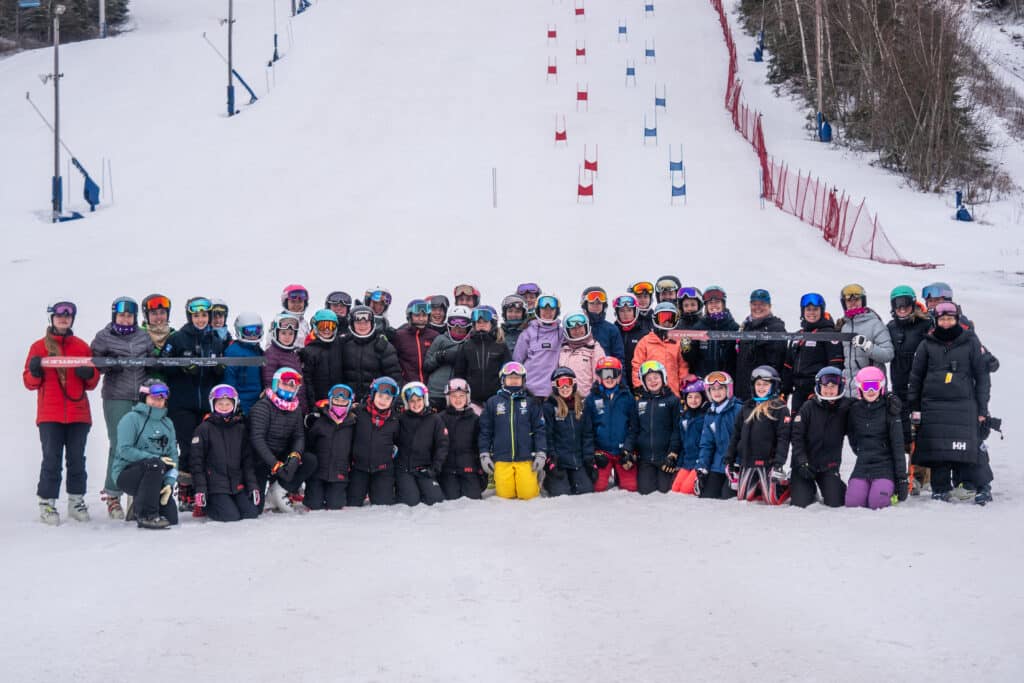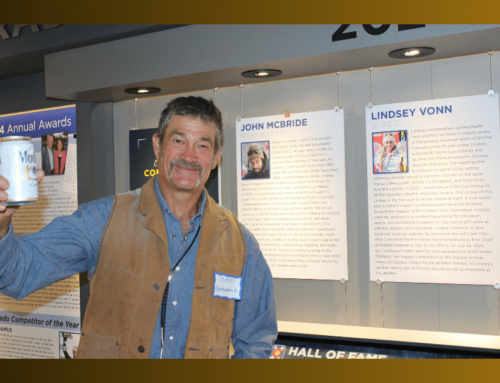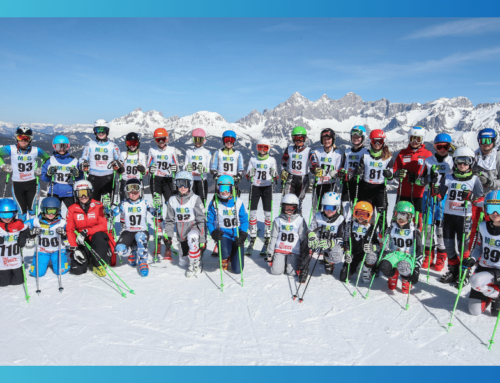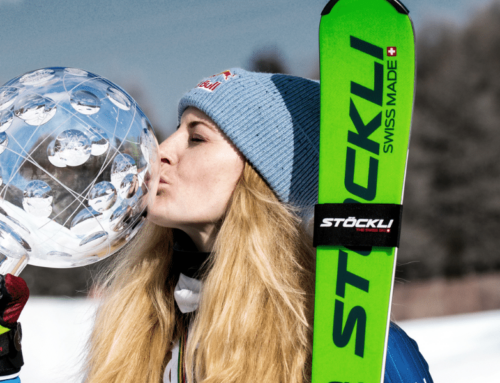Championing Tomorrow’s Athletes: Sarah Byrne, Canada’s Domestic Coach of the Year, and Wentworth Ski Race Club’s Commitment to Youth Development
This month, Alpine Canada Alpin announced the winners of the 2024 Canadian Ski Racing Awards. Athletes and coaches across Canada, at all different levels, were acknowledged for their achievements, dedication, passion, and innovation in the sport.
Amongst many deserving coaches, 29-year-old Sarah Byrne, a U14 lead coach at Wentworth Ski Race Club (WSRC), Nova Scotia, was awarded the Coach of the Year for domestic programs.
Sarah and the whole team at WSRC are committed to fostering a community-centered atmosphere within the club, which has been recognized amongst the Canadian alpine ski community.
She couldn’t believe it when she received the Coach of the Year award, but she feels that it’s a reflection of the entire program and the creative efforts they’re making to support the younger athletes both on and off the snow.
Sarah stated, “I think the club as a whole is running just unbelievably right now.” She continued, “I think I do a good job working with the kids, but I think a big part of your program’s success is taking the time to work with the coaches that are up and coming.”
Gregor Byrne, the WSRC Program Coordinator, Senior Team Coach, Sarah’s father, and longtime coach of all levels, proudly explained how he thinks Sarah achieved this award: “Sarah never shies away from the task at hand. She has the mentality that it should never matter whether you are a girl or a guy if you are a coach. I am with her on that.”
He continued, “She relates really well to the age group she is coaching and younger. She jumps in to challenge the athletes, and she does not use a lot of jargon.”
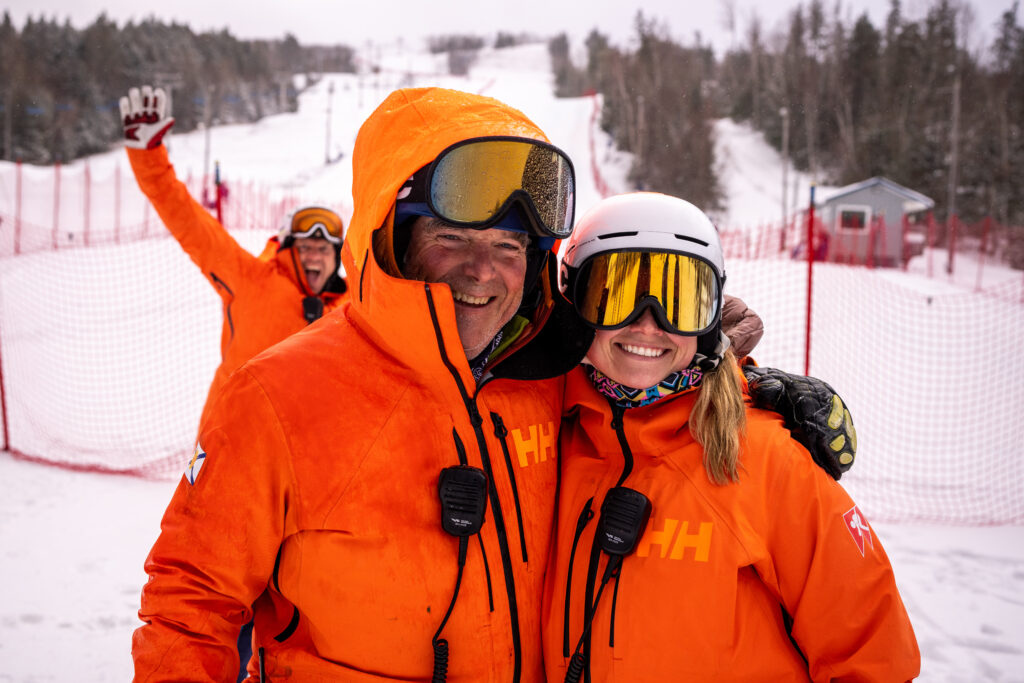
Focusing on Progress, Not Outcome
Sarah believes that they see success with athletes when they shift their mentality away from just the end result.
She stated, “We are not outcome-based, but progress-based.” She continued, “So, if they’re focusing on what they’re working on, then they have a greater chance of achieving the desired outcome.”
WSRC begins actuating on strategies that focus on the athletes mental strength in the sport from a young age, which is important to their progress-based initiative.
Gregor stated, “We start very simply with the buzzwords, ‘control your controllables,’ because that is all you can do. We start that at U10.”
From U12, the program steps into broad process-based planning, which gives them the starting point to think about their goals.
“Our number one goal we tell our athletes is to be better at the end of today than when we started,” Gregor stated.
Both Sarah and Gregor spoke about how important it is to make sure they meet with the kids at the end of the day to have them reflect.
“Kids and humans, in general, tend to go to the negative all the time, so we try to switch that up by asking them ten things that went well,” Gregor explained. Then the coaches have the athletes reflect on what they learned and what they can focus on more in the next session.
The Importance of Camaraderie: Apples and Onions
At WSRC, the program takes consistent steps each day to ensure that the camaraderie amongst their coaching staff remains a top priority.
“All of the coaches get together each day for BAR, which is Before Action Reports. Then, we have AAR, or After Action Reports,” Sarah explained.
Gregor believes it is critical to bring the staff together, whether they are part-time or full-time, to work on creating a cohesive culture. On top of meeting twice a day, the staff also meets outside of the season as well.
“It is really important because they are the coaches. So, we meet early in the season, we meet in the summer, and we create a number of cultural goals. Everybody is important, and everybody matters,” Gregor explained.
During the daily meetings during the season, the team ensures that they talk about an “apple,” which is something that went well for the day, and the “onion” of the day, which is something you would change.
WSRC believes these are important topics to cover amongst the whole staff because it gives everyone a voice, the staff can learn from different scenarios, and everyone understands what other coaches are encountering daily.
Gregor has utilized two books, The Culture Code and The Talent Code, both by Daniel Coyle, as the club’s main guide to bringing the staff together and creating community around the club.
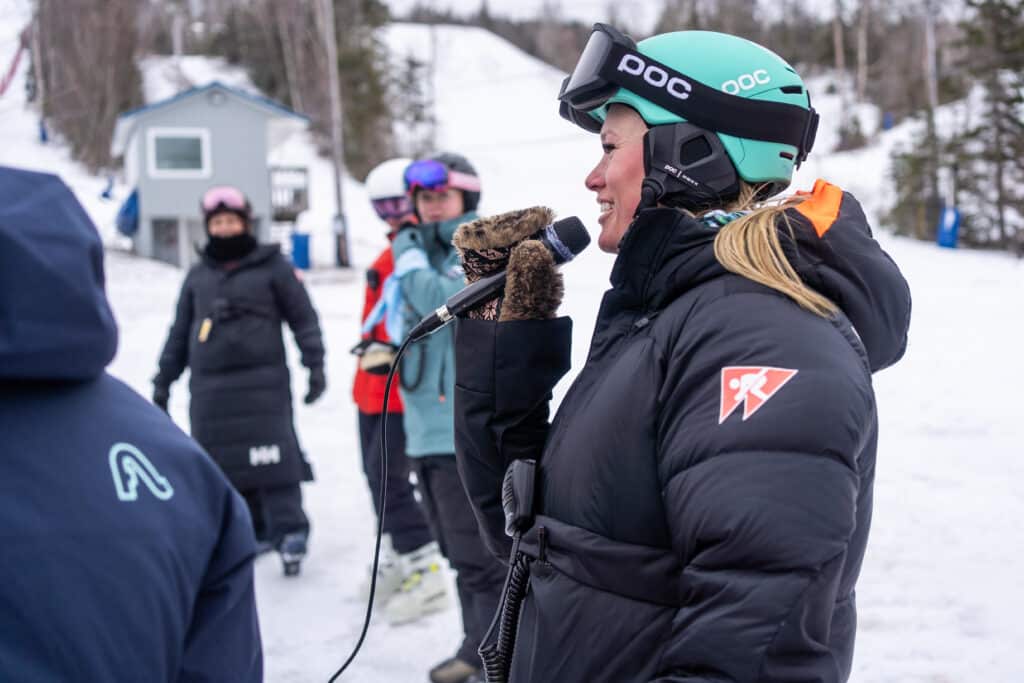
Consistent Implementations
A few other aspects that both of the Byrne’s brought up that they believe are important to the club and the sport include minimizing technology, leveraging competitive nature, and journaling.
Technology
Technology has advanced and become a factor that every team has had to consider when working with athletes.
Sarah explained, “We have implemented rules with technology. We have a no phone rule in our clubhouse, in video sessions, and if we see it out on the hill, we take it for the day and put it into a basket.”
She continued, “Additionally, when we go to overnight camps, the athletes have to put their phones in a bowl before they head to their rooms.”
She further explained that they had seen a rise in athletes engaged solely in their phones while on the chairlift and at other team activities. This took away from critical aspects of developing the athletes holistically. Thus, they have taken measures that have been well-received by the club’s community.
Encourage Competitive Spirit
Although it is important to WSRC that they steer away from focusing solely on the outcome, it is also important to them to add in competition when training young athletes.
Sarah stated, “Society has gone towards participation ribbons and no competition where everybody’s a winner. But with the U12 and younger athletes, we try to do as much competition during training sessions.”
She continued, “We time them; we’ll have them compete in skating races, 360 competitions, and more. Honestly, if there’s a little bit of competition, they’re more engaged.”
Journaling
“The journaling part of the sport is the most important,” Gregor explained when he was talking about U14 and U16 athletes.
He continued, “If they write it down, it works so well. Any FIS, World Cup, or Olympic athlete, those athletes have journaled and kept track of everything.”
The mental training that the program aims to continuously do with their athletes is something they boast about and find critical to their success.
Bringing Female Coaches Up
Sarah Byrne has also been one to stand out in terms of helping other female coaches grow in the province and setting an example in a predominantly male industry.
Progressing as a coach under her father and watching her older brother, Mike Byrne, coach at all levels, she found comfort in working with male coaches. This has been an aspect that has contributed to her growth in the industry.
“I do take initiative a little bit to take the younger girl coaches out on the hill a lot, and I try to encourage them to take the initiative to set courses and show up prepared,” Sarah explained.
This year, Sarah assisted in hosting a Nova Scotia Girls Fast Forward Camp.
“There were about 15 other female coaches and a coach from Alpine Canada,” Sarah explained.
They emphasized different key aspects that give females more equal opportunities in the industry. “If you want to be taken seriously as a guy, there’s no reason you won’t be as a girl. However, you won’t be taken seriously if you show up unprepared, not on time, not raising your hand, and not speaking up,” Sarah stated.


